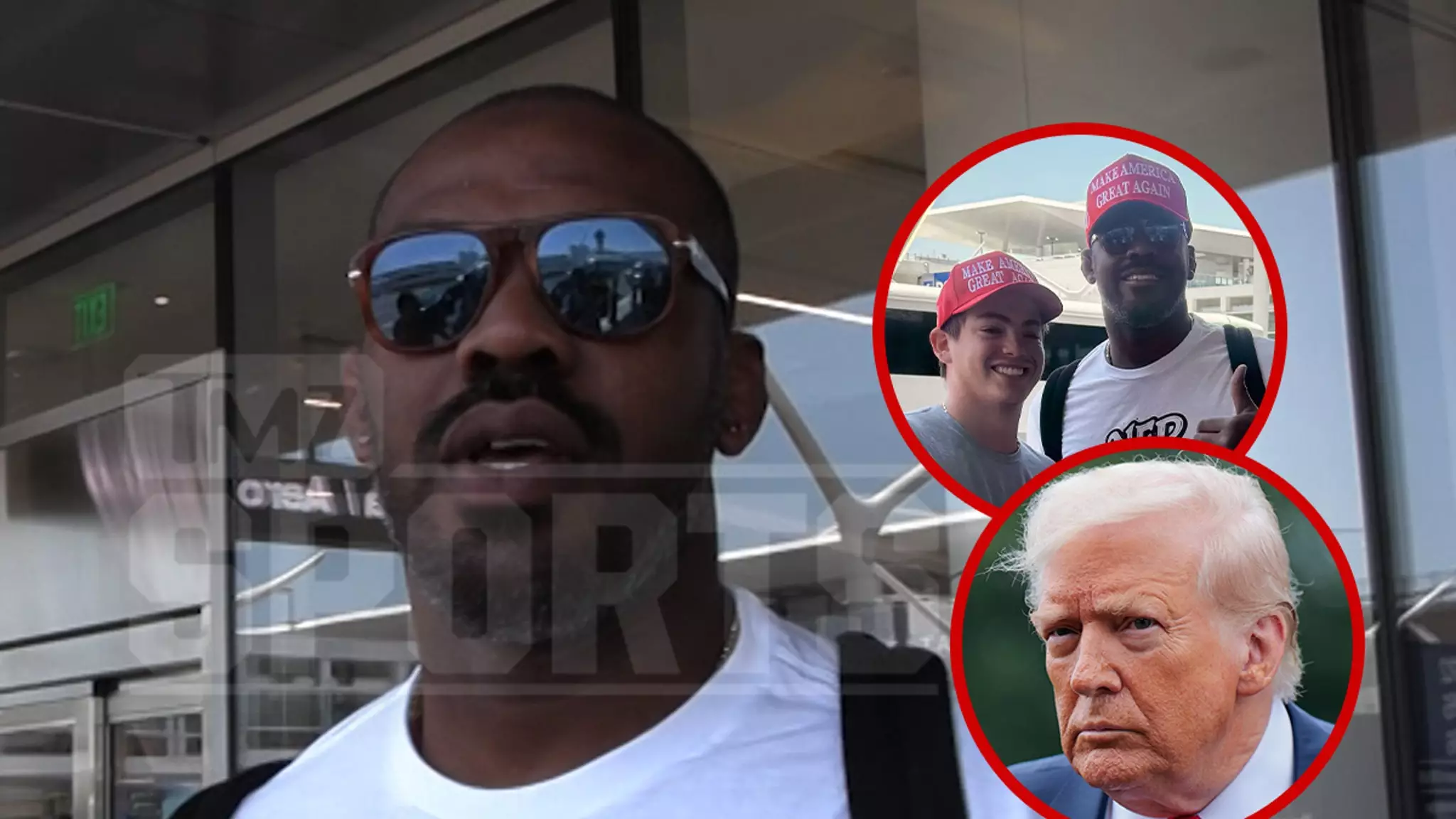Jon Jones, widely regarded as one of the greatest fighters in MMA history, exudes confidence about his participation in an unprecedented UFC event hosted at the White House. The event, though not yet officially scheduled, has generated significant buzz across the MMA community. Jones’s conviction suggests he perceives this as a milestone not just for himself but for the sport of mixed martial arts as a whole. His enthusiasm is grounded in the belief that his presence on this exclusive card is inevitable, which underscores his status as a key figure in the sport.
This event could symbolize a cultural intersection, blending the worlds of sport, politics, and celebrity. Jones’s outspoken support for certain political figures adds layers of complex symbolism to the event. His exchange of an autograph for a MAGA hat at the airport highlights his political leanings and personal branding, which might influence the public’s perception of him and the UFC’s decision to host fighters aligned with political figures. This convergence enhances the event’s significance, elevating it from a mere fight night to a show that could spark broader conversations about sports’ role in political discourse.
Uncertainty, but a Clear Desire
Despite the lack of formal arrangements, Jones’s unwavering belief that he will step into the octagon on this historic occasion is noteworthy. His statement, “We haven’t had a conversation about it, but I have a very strong feeling that I’ll be fighting that night,” reveals a level of self-assurance that borders on conviction. It signals his understanding of how high-profile this event is and his keen interest in being part of it, regardless of the logistical uncertainties.
Jones’s comments reflect a fighter who is eager to participate in a defining moment—an event that could forever imprint his name alongside a unique chapter in UFC history. While he admits the fight might be his first and last since announcing his retirement in June, the door remains slightly ajar for future possibilities. Such ambiguity leaves room for speculation about whether this event signifies a true farewell or merely the beginning of another chapter.
The Broader Impact and Future Prospects
The potential fight at the White House aligns with a broader narrative that sports figures are increasingly engaging with political themes, either voluntarily or through circumstance. Not everyone is enthusiastic about outdoor fights or events hosted in politically charged venues, as Khalil Rountree pointed out. Nevertheless, the enthusiasm from fighters like Jones highlights a desire to make history, pushing the boundaries of traditional MMA events to include unprecedented venues that spark collective fascination.
UFC President Dana White’s mention of a tentative date, July 4, 2026, hints at the event’s aspiration to be a patriotic spectacle, possibly tying in with themes of national pride. Whether the anticipated fight happens as planned or remains a future ideal, its potential debut marks an evolution in UFC’s branding strategy—one that aims to leverage political and cultural moments to increase its global appeal.
This planned event signifies more than just another fight night. It symbolizes the sport’s ambition to intersect with larger societal themes and to carve out a legacy rooted in bold, historic moments that elevate MMA beyond the cage and into the collective consciousness.

